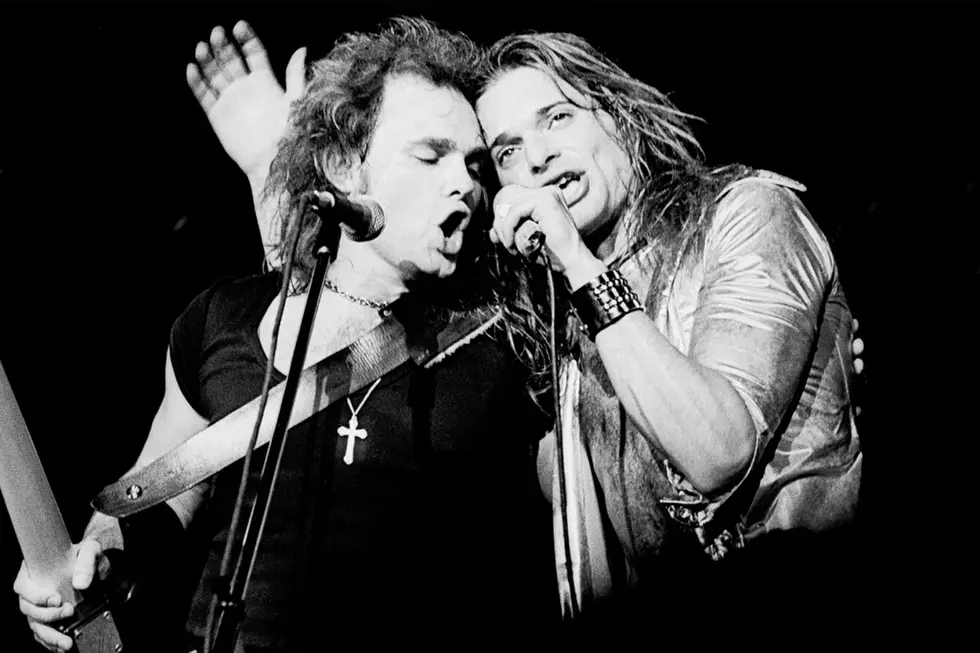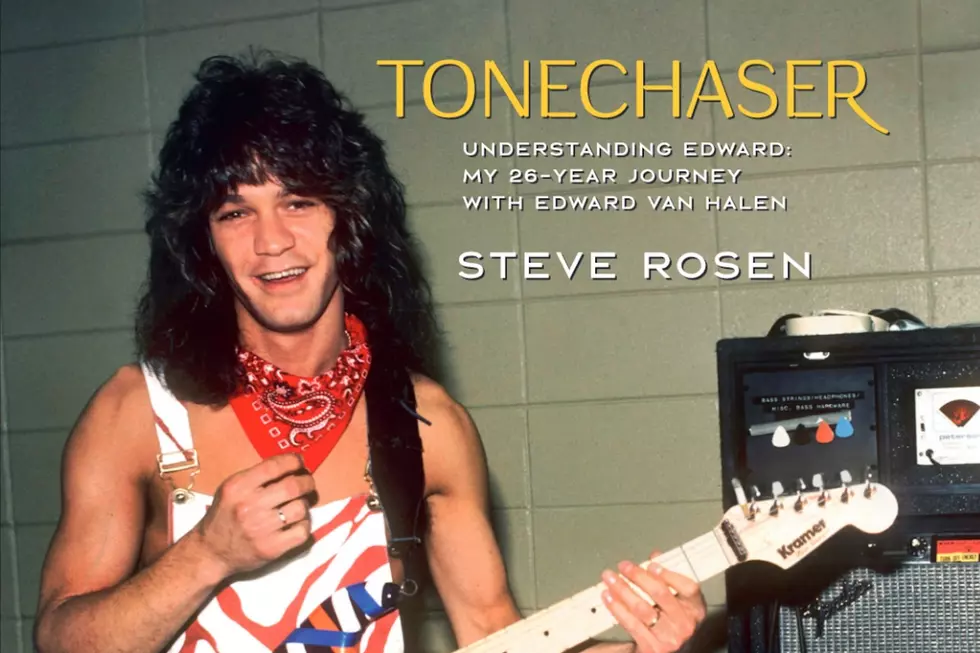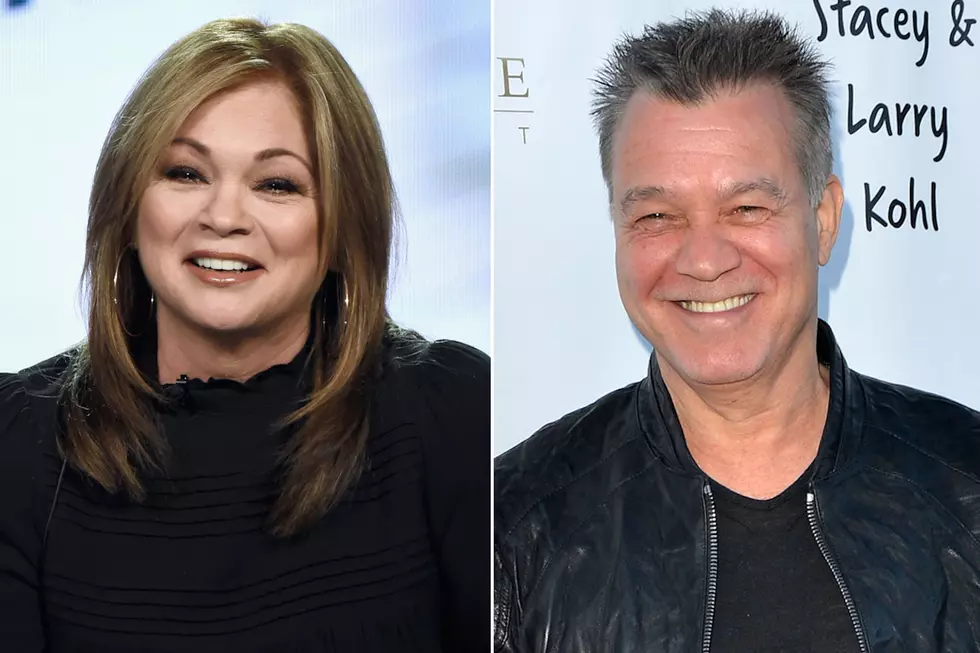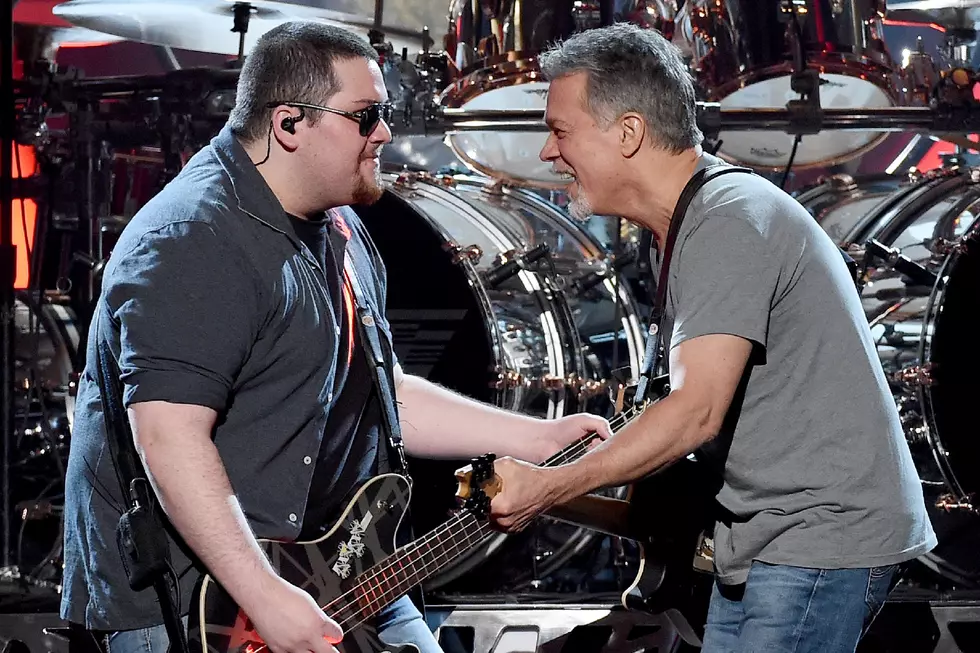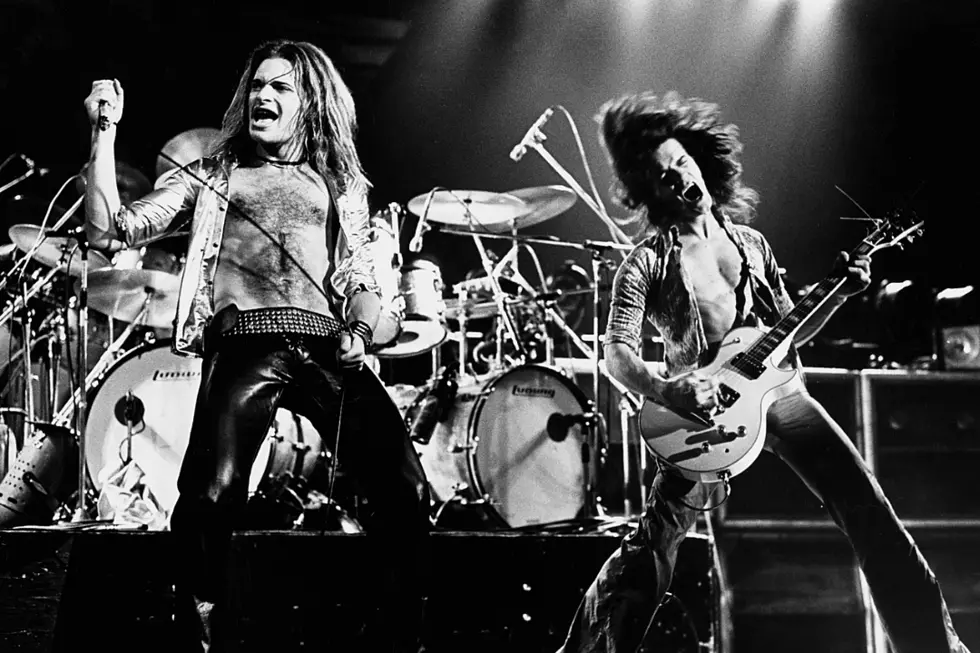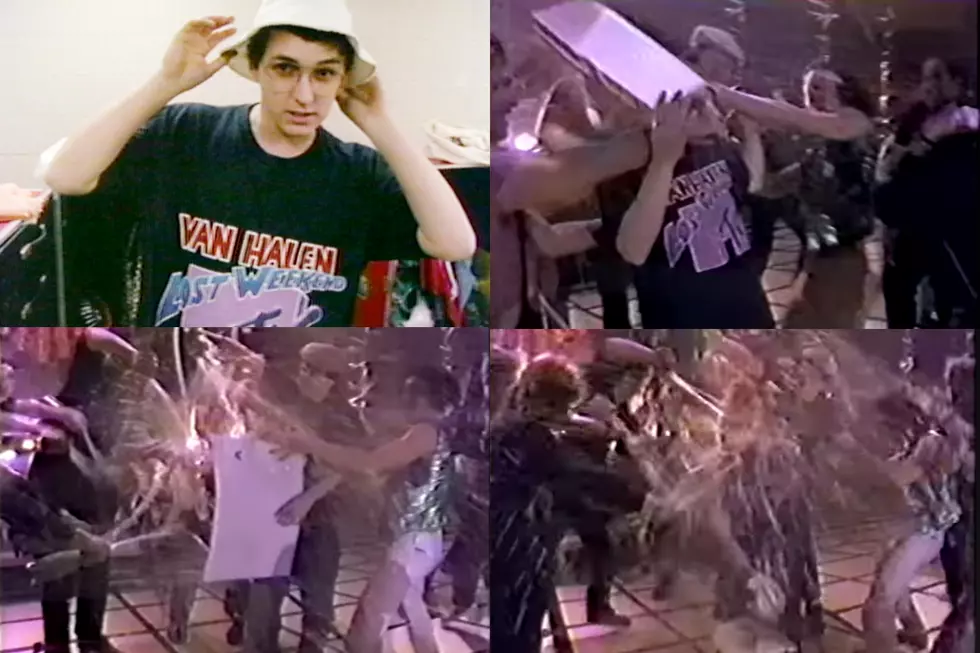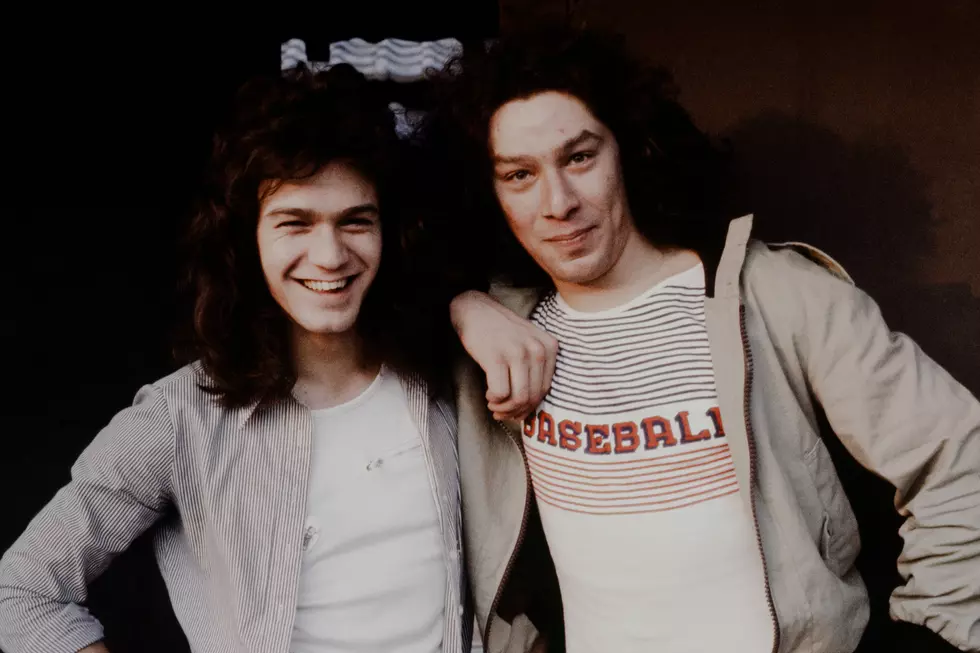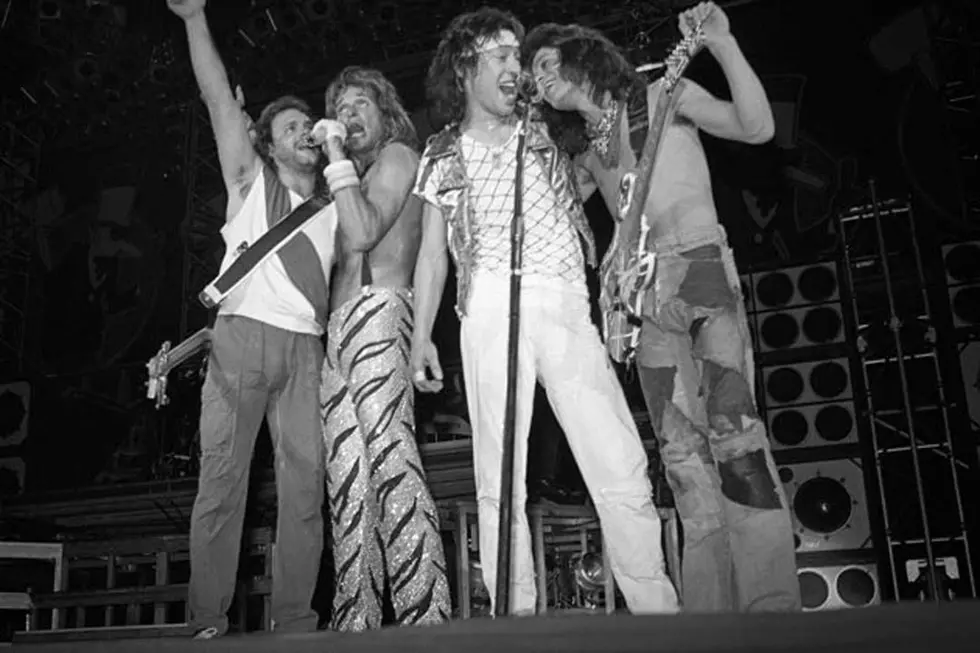
When Van Halen Played Their Last Concert With the Original Lineup
Any rock band with a flamboyant frontman is bound to face its share of personality conflicts, and in the preening David Lee Roth, Van Halen had a singer more flamboyant than most. By the mid-'80s, not even the world-beating success of their smash 1984 LP was enough to keep the group's volatile blend from blowing up in the band members' faces.
Tension in the ranks was nothing new for Van Halen. But in the past, more often than not, it had produced a net positive effect, with the separate sides in conflicts over musical direction meeting in the middle to create the band's signature sound – an eminently radio-friendly combination of hard-rock crunch and pure-pop sheen. It added up to multi-platinum magic with 1984, but it also pushed their bond to the breaking point, and by the time they hit the road to start promoting the album, the writing was pretty clearly on the wall.
The primary tug of war was between Roth and guitarist Eddie Van Halen, involving everything from creative pace to creative output. Roth's stated aims, as always, were crystal clear. "I've always been a showoff," he told the Sunday Times in 1984. "But I've also always had something to say. I will express myself through other avenues. Just so long as I'm famous. So long as the spotlight's on Dave."
It was that attitude that helped drive a wedge between Roth and his bandmates – and sparked persistent rumors that he'd break ranks to start a solo career. In public, however, harmony generally prevailed; as Roth told the Face in October of that year, "Barring any acts thereof, Van Halen will continue forever." Even then, he quickly added, "But if we don't, which I suppose is possible, you know what they say in the music business: here today, gone later today."
Things didn't seem as cheerfully cavalier behind the scenes: Roth traveled under separate cover during the 1984 tour, and even during the pre-TMZ era, the widening divide was hard to disguise. "There was always tension between me and Edward," he shrugged. "But then there’s always tension with me and everyone!"
That tension continued to rise throughout the first half of 1984, as the band hit the road for a four-leg North American tour. Even with a series of sold-out dates, one of the biggest albums of the year and a trio of Top 20 singles at their backs, the group was rapidly losing steam, and by the time they started a run of European shows with the Monsters of Rock Tour in August, they were approaching the end of an era.
The band played its final Monsters of Rock date on Sept. 2, 1984 in Nuremberg, Germany, closing out the 1984 tour by playing what would prove to be their final date with Roth for more than two decades. Things didn't fall apart quickly, however: Early the next year, when Roth started his solo career with the Crazy From the Heat EP, he still insisted that he was part of the band, using a guest appearance on Late Night With David Letterman to proclaim: "I've got strong tribal instincts, and we'll be going to the studio sometime in the next month to start arguing again."
That proved excessively optimistic. Roth quit the band not long after, with his departure made official in mid-August 1985, opening the door for Sammy Hagar to step in and front Van Halen through a series of hit albums and singles. Like Roth before him, Hagar departed the lineup in acrimony, leaving in 1996 and beginning a bumpy decade that saw both Roth and Hagar returning for brief stints that sandwiched Gary Cherone's brief tenure. Once among the biggest bands in the world, they seemed irreparably broken.
"We were in the middle of this thing and it was getting bigger and bigger," said Alex Van Halen in an interview with fan newsletter the Inside. "Individually, we were so far apart that it was like night and day. We were never together, although it looked like we were from the public's standpoint. That's why in 1984 it was very natural for it to fall apart. We saw it coming, even though when it actually materialized, it was a surprise."
In the end, though, sometimes we're better off with the devils we know – and finally, after years of silence and an even longer stretch of discord, the Van Halens reunited with Roth for a tour in 2007 and a new album, 2012's A Different Kind of Truth, and subsequent tour. It wasn't perfect: Co-founder Michael Anthony had been forced out after touring alongside Hagar, and a substantial portion of the record was culled from older demos. Still, the album did accomplish something fans long thought all but impossible, restoring Dave and Eddie to their rightful positions on opposite sides of one of rock's best, longest-running battles.
"We accused each other of betrayal and thievery and lies and treachery," Roth laughed in a 2012 interview with the Los Angeles Times. "And it was all true. We were all guilty. Dig up the past, and it's going to get all over everybody. And, man, do we have a past."
Van Halen Albums Ranked
See Rock’s Epic Fails: Van Halen Edition
More From Ultimate Classic Rock
